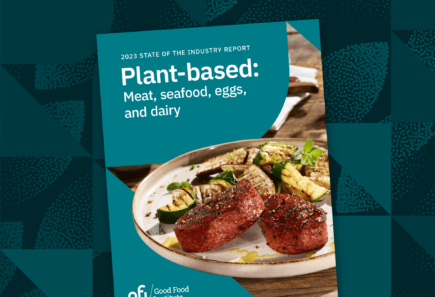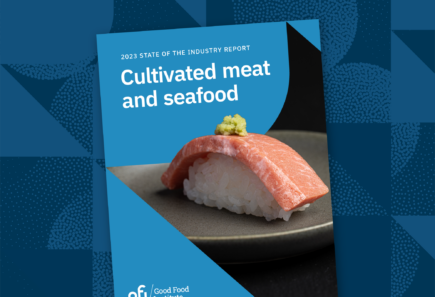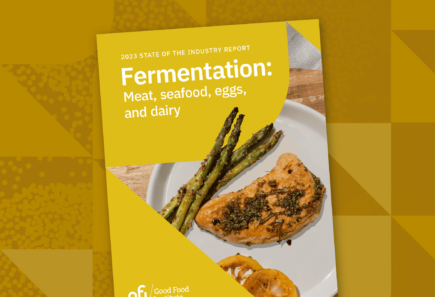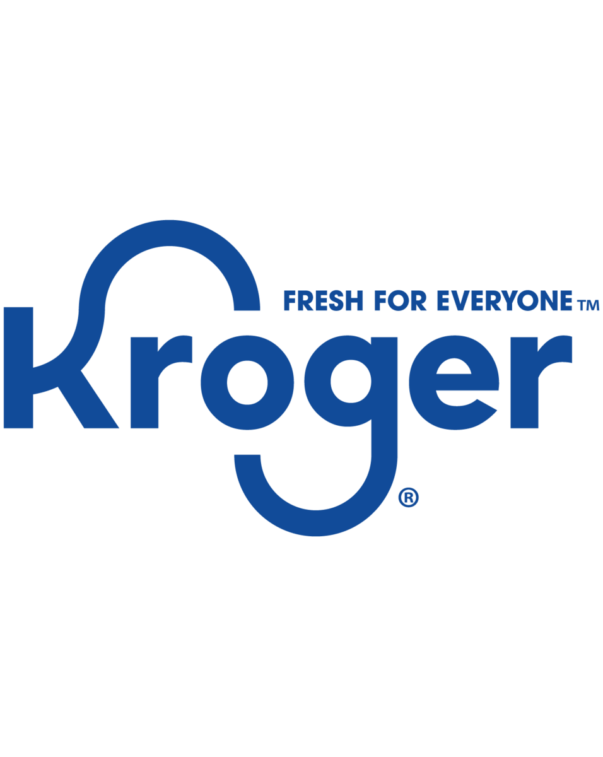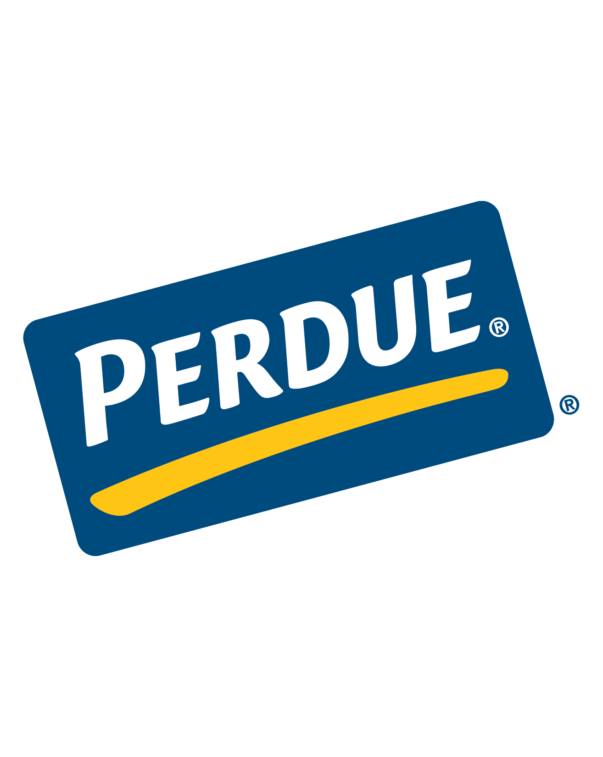
Industry
As a nonprofit working to build a sustainable, secure, and just food system, we partner with companies and investors across the globe to drive investment, accelerate innovation, and scale the supply chain — all faster than market forces alone would allow.
Get updates to your inbox
Sign up for our monthly newsletter covering all things alternative proteins.
Accelerating the alternative protein industry
Our work with global partners across the private sector advances the alternative protein industry and enables market breakthroughs. We analyze the market to identify key white spaces and emerging opportunities and provide actionable, open-source market data and consumer insights. We foster an idea-rich startup ecosystem and drive capital to scale the industry. We help inform incumbent food and meat manufacturers’ alternative protein strategies by sharing industry insights and data.
In short, we partner with companies throughout the supply chain to identify the most impactful business activities that will grow the bottom line and advance the next generation of alternative proteins to compete with conventional animal products on the key drivers of consumer choice: taste, price, and convenience.
Catalyzing innovation and investment
We build relationships with — and provide research and insights to — the world’s leading food and meat companies to catalyze innovation and commercialization of alternative protein products, including plant-based meat, eggs, and dairy. To inform capital providers of alternative protein opportunities, we analyze and present information on the market to a wide variety of institutions, including venture capital, private equity, family offices, banks, corporations, and investor groups. We also work with industry experts to identify, catalog, and analyze concrete white space ideas.
We provide startups with early-stage support, such as pitch deck reviews and admission to the GFI Fundraising Database. More than 1,300 entrepreneurs, investors, and scientists have joined our Good Food Ideas (GFIdeas) community to learn from food industry experts and make fruitful connections.
Making alternative proteins delicious and affordable
We work directly with manufacturers to identify key product opportunities, hone strategy, and accelerate the pace at which alternative protein products gain market share. We help manufacturers develop products that are as tasty, affordable, and accessible as conventional products.
Our market research highlights the rapid growth of plant-based meat, eggs, and dairy, and identifies key category opportunities. Our plant protein overview, technical guides, and company databases accelerate R&D, innovation, industry collaboration, product launch, and scaling. Our consumer insights identify current and potential consumers for alternative proteins and describe consumer motivations, adoption, perceptions, and barriers.
Expanding access & accelerating growth
We work with food retailers to identify and implement best practices for growing plant-based food sales, including strategies for assortment, own-brand product development, merchandising, and marketing. We’ve provided guidance to many of the top U.S. food retailers.
We advise executives and R&D teams at the top restaurant chains on increasing plant-based menu options and improving marketing and sales tactics. We’ve worked with influential foodservice distributors and many of the largest U.S. restaurant chains.
Our focus areas
Key resources
Technology and business landscape
Our State of the Industry reports offer a deep dive into the key technologies, business developments, and scientific advances that are propelling the industries for plant-based, cultivated, and fermentation-derived meat, eggs, and dairy.
Market opportunities
Our solutions database offers up ideas with the potential to accelerate the growth of the alternative protein industry. Discover ideas for new commercial ventures and products, find inspiration for research projects, and explore ecosystem-level interventions to support the alternative protein industry as a whole.
Increasing sales
We work directly with foodservice providers and retailers to increase sales of plant-based foods by appealing to the largest consumer groups. Our resources include best practices for marketing, merchandising, assortment, and menu design.
Alternative protein food industry survey
In January 2024, we conducted an alternative protein food industry survey for manufacturers, investors, retailers, food service companies, suppliers, and service providers.
In total, 533 respondents—including 161 food manufacturers, 56 investors, 17 restaurant and foodservice companies, 9 retailers, 133 suppliers, and 157 service providers—completed questions from the survey. Navigate to specific organization types to understand the challenges and opportunities facing companies across the supply chain.
Alternative protein manufacturers and suppliers
Alternative protein companies are focused on balancing near- and long-term industry goals.
“Alternative protein manufacturers and suppliers,” defined as food manufacturers and suppliers focused primarily on alternative proteins, were surveyed with results from up to 168 participants. Many respondents stated their companies were financially stable, with 40 percent saying they had over a year of financial runway. Respondents skewed toward earlier-stage companies—45 percent of respondents’ companies raised less than $1 million in all-time funding. For companies seeking to reduce costs, respondents identified 1) new product expansion, 2) workforce, and 3) advertising and marketing as the areas most likely to be scaled back.
Respondents identified the key fundraising challenges in the alternative protein industry as 1) the relative lack of non-dilutive funding opportunities and 2) mismatches between long-term industry expectations and near-term company performance. While respondents highlighted strong unit economics, a healthy bottom line, and profitability as key priorities in the current environment, investors remain most interested in opportunities with sizable expected growth. As a result, many companies are simultaneously working to reduce costs in the near term while demonstrating long-term growth potential.
Diversified food companies
Although 68 percent of respondents working at companies involved in alternative proteins said their alternative protein revenues increased or held steady in 2023, 63 percent stated their alternative protein products performed below expectations.
The diversified food company audience area included meat and consumer packaged goods (CPG) companies, and as many as 46 respondents answered questions in this audience area. Roughly three-fourths of respondents worked at companies involved in the alternative protein industry. However, alternative proteins still comprised a relatively small portion of overall revenues in respondents’ companies, less than 5 percent of total revenues on average.
The mismatch between product performance expectations suggests an opportunity for better alignment between near-term expectations and long-term optimism.
Investors
Investors are optimistic about alternative proteins’ long-term prospects but are uncertain about the immediate path ahead.
As many as 56 respondents answered portions of the investor questions. Investors highlighted clear addressable markets, a path to sustainable unit economics, and differentiation from other companies as the most important factors when deciding whether to invest in alternative proteins.
Investors’ outlooks for the sector differed based on the time frame in question. Of respondents already invested in alternative protein companies, 28 percent said they were optimistic about the alternative protein industry in the short term, while 100 percent of respondents said they were optimistic about alternative proteins in the long term.
Roughly half of respondents already invested in alternative protein companies said they passed on an alternative protein deal in the past year after some diligence because they were either concerned about the individual company’s return potential or because they did not like the proposed valuation, and 41 percent said their alternative protein investments decreased in 2023. Bridging the sentiment gap is key to ensuring that companies with long-term growth opportunities survive near-term difficulties.
Restaurants and retailers
Restaurants and retailers are exploring how alternative proteins fit into their initiatives.
As many as 13 respondents answered questions in the restaurant and foodservice audience area, while as many as six respondents answered questions in the retailer audience area. The restaurants and foodservice companies planning to incorporate alternative proteins into their CSR initiatives were primarily doing so from a health and wellness perspective, not an environmental or animal welfare perspective.
Although the majority of respondents in the retailer audience area stated that their alternative protein products met or exceeded expectations, roughly a third said products failed to meet sales targets. Ensuring near-term sales targets align with broader market expectations may support perceptions of the sector.
Suppliers
Investment, research and development, and regulatory concerns keep some suppliers on the edges of the alternative protein market.
As many as 64 respondents answered questions in the supplier audience area for those partially or not involved in alternative proteins. The amount of investment and research and development needed to enter the alternative protein space are barriers for these companies, and regulatory concerns are also keeping some suppliers at arm’s length. Opportunities, like partnerships, that offload these costs and risks to other organizations are likely good fits for these companies.
Many suppliers are not primarily driven by sustainability. These companies prioritize appealing to more consumers or customers and staying competitive with other companies and brands.
Explore our webinar series
The Business of Alt Protein seminar series is geared toward a commercially focused audience on topics related to starting and scaling a good food business.
Meet our experts

Caroline Bushnell
SENIOR VICE PRESIDENT, CORPORATE ENGAGEMENT
Caroline Bushnell leads GFI’s Corporate Engagement team in their work with companies and investors around the world to accelerate the alternative protein industry.
Areas of expertise: food industry, alternative protein ecosystem, market trends, consumer insights, CPG marketing, emerging industry opportunities.

Emma Ignaszewski
DIRECTOR OF CORPORATE ENGAGEMENT
Emma Ignaszewski oversees the corporate engagement team’s direct outreach group.
We conduct research and share insights to educate the public on alternative proteins and champion their adoption by the food industry, including manufacturers, retailers, restaurants, investors, and more. By 2050, the global demand for meat is projected to rise significantly. By reimagining how meat is made, we can meet consumers where they are. Our work makes it possible for alternative proteins to increasingly compete with conventional meat, seafood, eggs, and dairy on the key drivers of consumer choice: taste, price, and convenience. We analyze the market, uncover consumer insights, identify AP white spaces and opportunities, and build the community.
Areas of expertise: alternative protein industry landscape, market insights and consumer research, strategic engagements with companies, marketing & communications, alt protein sustainability & climate impacts.

Sharyn Murray, CFA
GFI ALUM

Marika Azoff
CORPORATE ENGAGEMENT MANAGER
Marika leads GFI’s work with foodservice operators, retailers, and distributors to inspire and accelerate their shift toward alternative proteins.
Areas of expertise: foodservice, retail, distribution, alternative seafood, relationship development, public speaking

Daniel Gertner
LEAD ECONOMIC AND INDUSTRY ANALYST
Daniel analyzes the alternative protein industry landscape and identifies gaps and opportunities in the sector.
Areas of expertise: alternative protein market landscape, research and analysis, food and agricultural economics

Taylor Leet-Otley
CONSUMER RESEARCH LEAD
Taylor Leet-Otley oversees GFI’s consumer research, keeping the organization and the industry in touch with consumers’ needs & beliefs in the fast-moving alternative protein category.
Areas of Expertise: Consumer insights, market strategy, branding & marketing








